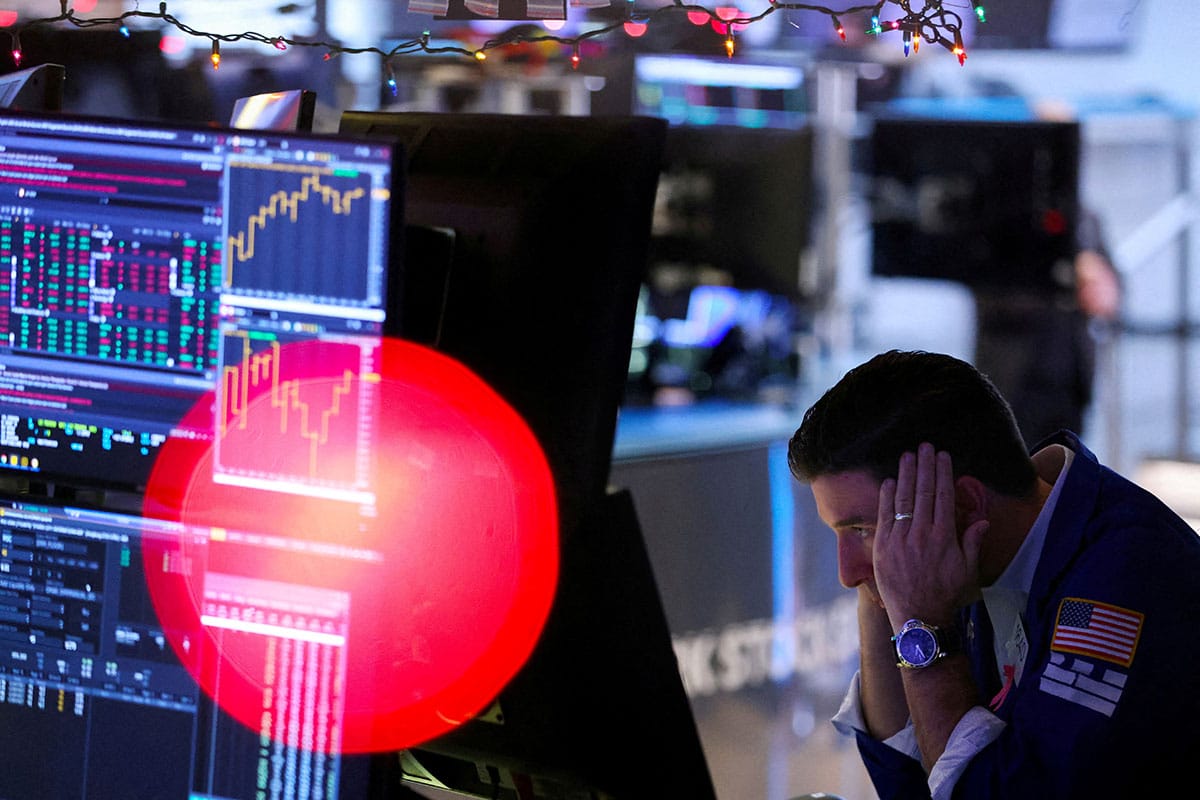The probability of a recession in 2025 is very likely, experts told Arabian Business, in light of recent economic data and market volatility.
Economists and market analysts are concerned about a recession next year due to shifting employment rates in the US, disappointing economic data, and global market volatility as was seen last month.
But is a recession in 2025 truly on the horizon, or are these fears overblown?
Mounting concerns
John Hardy, Chief Macro Strategist at Saxo Bank, believes the odds of a US economic slowdown tipping into a recession next year are “very high.”
“The questions are those of timing (Q1 to Q3) and of the severity as well as whether inflation will slow sufficiently for the Fed to bring significant further easing relative to what is already priced.,” he told Arabian Business.
This sentiment is echoed by major financial institutions. J.P. Morgan Research recently raised its probability of a US and global recession starting before the end of 2024 to 35 percent, up from 25 percent in its mid-year outlook.
“US news hints at a sharper-than-expected weakening in labour demand and early signs of labour shedding. The latest business surveys also suggest a loss of momentum in global manufacturing and in the Euro area,” said Bruce Kasman, Chief Global Economist at J.P. Morgan.
Goldman Sachs analysts have also increased their estimated odds for a US recession to 25 percent from 15 percent, citing the July jobs report which showed unemployment increasing to 4.3 percent.
According to Mohamed Hashad, Chief Market Strategist at Noor Capital, there have been warning signs of an impending recession since 2022. However, the forecast for the global economy is “still cautiously positive despite uncertainties, with some regions seen better prepared to withstand any downturns than others,” he told Arabian Business.

Global ripple effects
The potential for a US recession carries significant implications for the global economy, experts said.
“The US is so critical as a source of global demand, and China is already grappling with the after-effects of its enormous housing bubble and will continue to do so for some time, so if the US slips into a recession next year, a generally sluggish forecast for the global economy at best remains the default scenario from our side,” Hardy said.
Hashad of Noor Capital believes that emerging markets may face serious difficulties, “especially if they depend heavily on outside funding and have high debt levels.”
He added that the GCC region, heavily reliant on oil exports, could also be at risk. “A worldwide recession would result in less demand for oil, which would affect the GCC countries’ income and stability.”
Markets tumble as recession fears grow, analysts split
Recent market turbulence has added fuel to recession fears. On Wednesday, Reuters reported a significant selloff, with Wall Street’s S&P 500 share index falling over 2 percent on Tuesday, and Japan’s Topix plunging 3.7 percent on Wednesday in its biggest daily drop since early August.
The tech sector, a bellwether for economic health, has been hit particularly hard. AI giant Nvidia saw a 9.5 percent slide on Tuesday, marking the deepest ever single-day market value decline for a US company.

Despite the growing chorus of concern, some experts argue that the economic picture remains mixed. J.P. Morgan’s Kasman noted that “these forces are being tempered by solid continued gains in overall activity, led by the service sector.”
He added that key vulnerabilities associated with a recession — such as sustained profit margin compression, credit market stress, and energy or financial market shocks — are “notably absent.”
Goldman Sachs analysts maintain that recession risk remains “limited” overall, citing the Federal Reserve’s ample room to cut interest rates to support the economy if needed.
Monetary policy
The US Federal Reserve’s actions will play a crucial role in determining the economic trajectory.
“The US dollar is global money, so we could have the classic episode, once recession concerns pick up further, that the US dollar strengthens as markets run for cover amidst the breakout of recession,” said Hardy.
He suggested that sufficient Fed easing, via interest rate cuts or other measures, could eventually weaken the US dollar considerably, “providing bright spots across much of EM after the initial scare.”
As the debate over a 2025 recession continues, experts advise businesses and investors to prepare for various scenarios. Hashad recommended “creating contingency plans through the development of an emergency fund, debt reduction, income stream diversification, prudent investment, and skill development.”
While a 2025 recession is not a foregone conclusion, growing concerns from experts and market signals suggest it is a possibility.

According to Hardy, the US presidential election is important for investors to watch as it could significantly impact economic policy depending on the outcome.
“If Trump wins, he will get both House of Congress and the policy impact could be quite large: new tax cuts, deregulation, etc. If Harris wins, she will likely only get the Senate if her polling numbers are significantly improved from where they are currently. In that case, the potential policy impact is far smaller,” he added.
According to Hashad, even if a recession in 2025 is unlikely, investors should exercise more caution given the current status of the economy and the market.
“With certain regions being more vulnerable than others, the prognosis for the global economy is still ambiguous. Because of its reliance on oil exports, the GCC region in particular faces many hazards. Precautionary economic policies and sustained diversification initiatives will be essential to reducing the possible effects of a global recession,” Hashad added.
“We can better equip ourselves to withstand any economic storms by being aware of the risks and acting proactively.”










